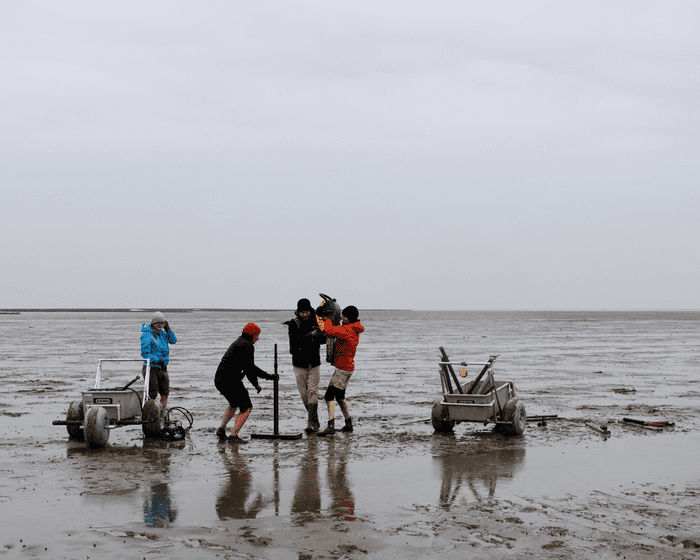The remains of a long-lost medieval church that sunk over 600 years ago have been found beneath the mud of northern Germany’s coast.
The submerged site of Rungholt is located in the Wadden Sea, the world’s largest unbroken system of intertidal sand and mud flats, running from the Netherlands to Germany.
Sometimes known as the “Atlantis of the North Sea,” the sunken settlement was drowned beneath the waves of the North Sea by a storm surge in 1362 CE. For some time, people suspected that Rungholt might just be a fanciful local legend – but hard evidence is now showing that the town existed and really did suffer an untimely demise.
Thanks to a recent survey, researchers were able to locate traces of the Rungholt church. The discovery was made by a team of archeologists from Kiel University, Johannes Gutenberg University Mainz, the Center for Baltic and Scandinavian Archaeology, and the State Archaeology Department Schleswig-Holstein.
They used a range of geophysical imaging techniques to survey over 10 square kilometers (3.8 square miles) of mudflats. This revealed a 2-kilometer (1.2-mile) long chain of medieval terps, artificial mounds that were built to protect settlements from high tide and surges.
Among these terps, the team found the foundations of a large building, measuring around 40 meters by 15 meters (130 by 50 feet), which almost certainly was a church.
“The find thus joins the ranks of the large churches of North Frisia,” stated Dr Bente Sven Majchczack, archaeologist in the ROOTS Cluster of Excellence at Kiel University in the UK, said in a statement.

The researchers also used sediment cores to record settlement remains and to reconstruct landscape evolution at selected sites on the tidal flats.
Image credit: Justus Lemm
“Settlement remains hidden under the mudflats are first localized and mapped over a wide area using various geophysical methods such as magnetic gradiometry, electromagnetic induction, and seismics,” added Dr Dennis Wilken, a geophysicist at Kiel University.
They suspect the church was perhaps the center of the city of Rungholt. According to some accounts, the medieval settlement was once a lively trading port where merchants traded fish, nets, and oysters amidst bustling streets lined with taverns, brothels, street musicians, inns, and churches.
All of this came to an end in January 1362 CE when a violent storm hit modern-day Germany, England, the Netherlands, and Denmark. It became known as “Grote Mandrenke” in Germany, which means “the great drowning of men,” and “The Great Wind” in England.
In the Chronicle of Anonymous of Canterbury, a monk in England described it as so: “Around the hour of vespers on that day, dreadful storms and whirlwinds such as never been seen or heard before occurred in England, causing houses and buildings for the most part to come crashing to the ground, while some others, having had their roofs blown off by the force of the winds, were left in the ruined state.”
Other than the odd written source, not much evidence of this cataclysmic storm exists. However, research such as this shows that physical traces of the disaster can still be seen today.
Source Link: Long-Lost Medieval Church Found In Sunken Town That Vanished In 1362